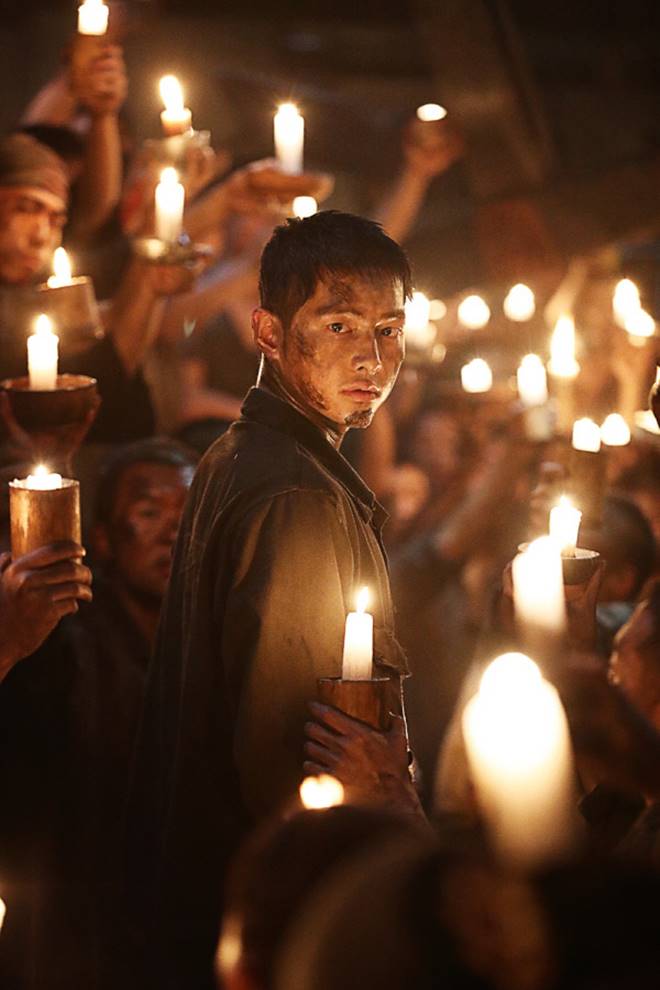
Song Joong Ki's latest release The Battleship Island is creating record after record at the box-office. The film narrates the story a group of about 400 Joseon workers who risk their lives to escape from their forced labour camp in Hashima. Set during the Japanese occupation-era, the film also stars Hwang Jung-min, So Ji-sub, and Lee Jung-hyun in key roles.
Well, the heated box-office has also paved the way to a slew of controversies. After being accused of theatre monopoly, the latest charge against the team is 'history distortion.' After its release, netizens are complaining of difference in the way the warship scenes are depicted in the film. There are claims that the story of comfort women and forced mobilisation by the Japanese army are portrayed in a diplomatic way. Some even accused that the Korean characters were portrayed more villainous than the Japanese who have colonised them. But the film's director Ryoo Seung-wan seems to e unaffected with these claims and in fact, he is confident regarding the accurate facts depicted in the film.
"It took a total of four years to complete the research and shooting. Finding records that contained an organized account of the events on the island proved a difficult feat," Ryoo told The Korea Herald. Made with a budget of US$ 21 Million, the film is bankrolled by Filmmaker R & K and distributed by CJ Entertainment.
The director also explained about his sense of responsibility to raise awareness about the atrocious but less-known historical event. He added that he first learnt about the existence of Hashima Island in 2013 and was deeply embarrassed to know about the subject in his 40s. With regard to the controversies over the film's stance, he clarified that he has woven the facts accreted to avoid any misinterpretation of the sensitive historical subject.
The colonizers' tyranny is expressed in a more subtle way. In the movie, the Japanese never directly harm or get angry at the Joseon workers. It's the basic rule of colonisation -- to create a collaborator among the oppressed, and create strife among the colonised," he explained.
The Battleship Island is running full-house across Korea.


